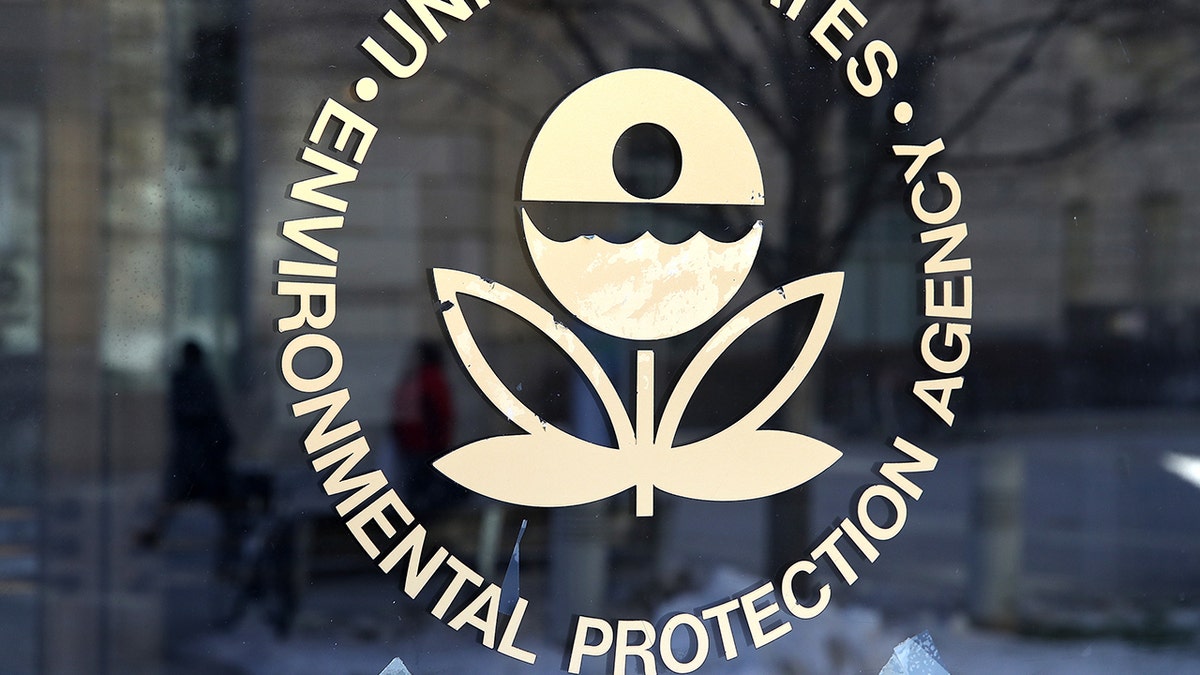Biden’s policies limit the ability to be energy independent: Fleischer
‘Special Report’ All-Star panelists discuss growing concerns over rising gas and oil prices as Biden announces new sanctions on Russia.
James Madison once warned that the "accumulation of all powers, legislative, executive, and judiciary, in the same hands, ... may justly be pronounced the very definition of tyranny." Unfortunately, the modern Environmental Protection Agency – with a little help from the U.S. Court of Appeals for the D.C. Circuit – seems determined to ignore Madison’s message.
Under a plan launched by the Obama administration, EPA claimed the power to reorder industries in the name of climate change. EPA believed it could shut down power plants, force power companies to invest in their competitors, and take otherwise extreme measures never before seen. And it claimed the right to do these things without any obvious green light from Congress.
My state of West Virginia led a broad coalition of other states in filing suit to stop the plan. Many other private companies, organizations and individuals joined with the state coalition in challenging EPA’s authority; even Obama adviser Laurence Tribe came out against the plan. In 2016, an unprecedented step, the Supreme Court agreed with us –staying this so-called "Clean Power Plan" right out of the gate.
The Trump administration saw the Clean Power Plan for what it was. But when that administration tried to permanently undo the effort, the D.C. Circuit held that it was the Trump EPA that erred. EPA, the court said, has effectively "no limits" on the measures it can use to regulate power plants and other carbon-emitting industries.

Environmental Protection Agency's logo is displayed on a door at its headquarters on March 16, 2017, in Washington. (Justin Sullivan/Getty Images)
Of course, just about every industry emits some carbon. So now, anyone might find themselves in EPA’s crosshairs: manufacturing facilities, hotels or even private homes.
The Supreme Court has the chance to set things right again when it hears West Virginia v. EPA later this month.
Much of the case centers on a simple concept dubbed the "major questions doctrine." That doctrine expresses a common-sense idea: when Congress intends for an executive agency to decide major questions of significant economic and political consequence, it will at least clearly say – in the text of an empowering statute – that it means for the agency to act. Otherwise, the court will assume that Congress has kept the power to decide the major questions for itself.
EPA wants to force the power industry to spend billions of dollars to reorder the entire energy grid.
This doctrine is not a new one. In cases like Brown and Williamson v. FDA (2000), the court has beat back agency efforts to seize control over major issues without a congressional go-ahead. There, it was the FDA’s attempt to ban tobacco. The idea has since been seen repeatedly, in many different contexts – from telecommunications to insurance.
More recently, the court has invoked the major questions doctrine in striking down the Biden administration’s "workarounds" during the COVID-19 crisis, including the eviction moratorium – Alabama Association of Realtors v. DHHS (2021) – and the OSHA large-employer vaccine mandate – National Federation of Independent Business v. OSHA (2022). The court said in these cases that federal agencies cannot use thin, vague statutes to reshape big parts of our economy.
And that’s exactly what’s at issue in West Virginia v. EPA. Through regulatory efforts like the Clean Power Plan, EPA wants to force the power industry to spend billions of dollars to reorder the entire energy grid. EPA wants to pick winners and losers, favoring certain special sources (such as windmills and solar panels) over others (such as coal and natural gas).
EPA justifies its plan by citing a vague provision in a little used part of the Clean Air Act. The provision says that EPA must identify the "best system of emission reduction," which is then used to create "standards of performance" for certain "existing sources" of air pollution. If all that sounds technical, it’s because it is – the provision was meant to provide for smokestack scrubbers and similar items that are put in place at the source. It was not a backhanded way of allowing EPA to force new economic systems into place.
No, if it is to be permitted at all, Congress must direct the sort of economic command-and-control seen in the Clean Power Plan. Yet Congress never called for this. In fact, Congress has repeatedly refused to implement even less bellicose measures in the name of climate change.
The major questions doctrine is far from the only reason for the Supreme Court to act. EPA’s actions also conflict with the federalism canon – an idea that statutes should not be read to upset the traditional balance of federal and state power, at least unless Congress clearly says it wants to do that.
States and Congress have tackled air pollution together, but states have traditionally managed the production of electricity. Even other federal statutes (like the Federal Power Act) recognize that tradition. Despite that, EPA would take that task out of states’ hands and start deciding on its own. It would become the nation’s new central energy planner. States would just implement the latest mandate from Washington. No one wants that.
CLICK HERE TO GET THE OPINION NEWSLETTER
In the end, West Virginia v. EPA will decide whether federal agencies operate within meaningful constraints or whether unelected bureaucrats may seize power for themselves. If the Supreme Court approves EPA’s unilateral effort, then other federal agencies will be emboldened to unleash similarly destructive agendas of their own.
The court needs to place the big decisions back where they belong: with Congress and the states. Otherwise, Madison’s worries about tyranny will come true.











































